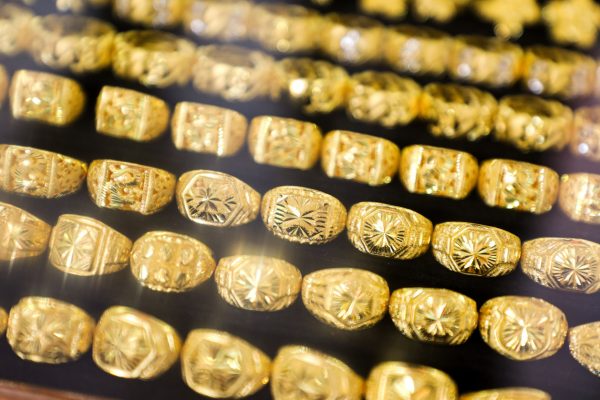สล็อต59、ตรวจ หวย 16 กันยายน 61、แคท888 หวย、ถูก หวย 6 ล้าน เสีย ภาษี เท่า ไหร่
After more than 1,สล็อต59000 tons of carcinogenic cadmium waste from Tak went missing, concerns are growing that loopholes in Thailand’s hazardous waste controls could be fatal.
Exposure to cadmium and its compounds can lead to fever, headache, and breathing difficulties. Worse still, it is known to cause cancer and also exacerbate diabetes, heart disease, and high blood pressure.
Health checks on locals living near a Samut Sakhon-based foundry where 6,492 tons of smuggled cadmium waste was found earlier this month showed unusually high levels of the poisonous metal in 16 people’s urine. They require medical treatment.
The foundry’s operator, J&B Metal Co Ltd, was listed as the buyer and recycler of 13,882 tonnes of cadmium waste from Tak-based Bound and Beyond Public Co Ltd (BEYOND), previously known as Padaeng Industry.
However, only half of that amount was found when the foundry was searched by officials from the Department of Industrial Works and the Natural Resources and Environmental Crime Suppression Division.
A further probe led to the discovery of 6,043 tons of cadmium waste in four other locations, including Samut Sakhon-based Cin Hong Check Inter Tech Co Ltd.
A co-owner of Cin Hong said he had bought 5,000 tons of cadmium waste from J&B Metal for 8,250 baht per ton to sell to another Chinese businessman, whose factory is located in Chon Buri.
Uses of cadmium waste
Penchom Saetang, director of the Ecological Alert and Recovery Thailand (EARTH), said cadmium waste has value because it can be melted to make other products under a regulated recycling process.
The recycling of industrial waste has become big business since the government launched its bio, circular and green (BCG) economy policy.
In 2020, the Department of Industrial Works gave its provincial offices the authority to permit the transportation of hazardous industrial waste.
However, that process appears to have been violated in this case, with cadmium waste not being used for the purposes stated by those who arranged for its transportation.
Flawed system
Sonthi Kotchawat, an independent environmental expert, said relevant authorities should have known that cadmium waste was dangerous and carefully reviewed any request for its transportation.
“Checks should have been conducted to see if the recipient ran a legitimate recycling business,” he emphasized.
Meanwhile, vehicles used to transport the waste should be fitted with a GPS device for monitoring and tracking. The vehicle’s cargo should also be checked at the destination to ensure it matches the original load.
He also pointed out that measures should be in place to ensure all toxic waste is effectively recycled and does not harm humans or their local environment.
For instance, since burying cadmium waste is subject to an environmental impact assessment (EIA), its retrieval from landfills should also require an EIA, Sonthi said.
BEYOND used to operate a zinc and cadmium mine on 2,500 rai of land in Tak. When its mining operations ended in 2016, it began burying the hazardous waste produced as per EIA guidelines. All the landfills were sealed in 2018.
However, the hazardous waste has been dug up and transported out of Tak province since last year.
Penchom said the transport of cadmium waste to companies other than the recipient mentioned in the permit showed there were flaws in the supervisory system.
“I can’t help but wonder if provincial offices of the Department of Industrial Works have the knowledge or ability to handle hazardous waste,” she said.
Government response
Prime Minister Srettha Thavisin has instructed the Industry Ministry to set up a fact-finding panel to discover what went wrong and how to remedy the cadmium scandal.
“Judging from reports I have received, there are many flaws in the system,” the premier said.
Meanwhile, Industry Minister Pimphattra Wichaikul has instructed BEYOND to draft plans to return the cadmium waste to the original landfill and bury it correctly.
“We have also cancelled the company’s permit to move the waste out of the plants,” she said.
BEYOND has presented authorities with a plan to transport the cadmium waste in 30 trucks from Samut Sakhon, Bangkok and Chon Buri to its landfill. The trucks will handle 450 tons per day in a 36-day operation to return the hazardous waste to its origin. If approved, the transportation of the cadmium will start on May 7.
Who pays for the impact?
Penchom said BEYOND must pay for any damage caused by the retrieval and transport of cadmium waste, under a law that went into effect last year.
“The polluter must pay. The company must also bear any costs incurred by the authorities who have had to step in to resolve this problem,” she said.
However, Sonthi said he believed authorities have not filed a complaint against BEYOND, which violated EIA requirements when it dug up the waste it had promised to bury safely.
Expert recommendations
Penchom said it was time for the government to review rules on industrial waste in the country, otherwise the loopholes would only lead to more such scandals.
“A review and improvement are necessary because the current system focuses on facilitating private companies’ operations,” she said, adding that Thailand also needs to improve its general standards of environmental protection. Assessments of environmental and health impacts (EIAs and EHIAs) should be conducted rigorously and not compromised to promote so-called Green Mining, Green Recycling or the BCG economy.
Penchom has also thrown her support behind a draft law for transparent reporting of pollution emissions and transportation of toxic waste, as well as areas polluted by landfills and the melting/recycling of hazardous waste.
The environmentalist also demanded the scrapping of a junta National Council for Peace and Order’s ordinance issued in 2016 that has effectively overridden the zoning law. Thanks to this ordinance, waste recycling and power plants have risen in areas where they should be banned, she said.
“The country should also overhaul overlapping regulations for environmental management and investment promotion,” she added.
By Thai PBS World’s General Desk

Bang Khun Phrom Palace - a former royal residence rich in history, art and architecture
Related News

Thaksin’s most complicated mission ever

As geopolitical tensions rock the world, gold gains in value

Time banks: Are they the solution to Thailand’s aging crisis?

When does “artificial” stop being so?
Recent Posts
- Cadmium scandal sheds light on loopholes in Thai law on hazardous wasteApril 20, 2024
- Bang Khun Phrom Palace – a former royal residence rich in history, art and architectureApril 20, 2024
- Traffic police officer still on life support after being hit by car during SongkranApril 19, 2024
- Ex-deputy PM criticises senators’ planned European study trips as terms endApril 19, 2024
- Diesel price to rise by one baht per litre this SaturdayApril 19, 2024
Thai PBS WorldTweets by ThaiPBSWorld
相关文章

กระทรวงการต่างประเทศ ยืนยัน สู้รบเมียนมา ไม่มีผู้ลี้ภัยเข้าไทย
นายนิกรเดช พลางกูร อธิบดีกรมสารนิเทศและโฆษกกระทรวงการต่างประเทศ แถลงข่าวถึงท่าทีของประเทศไทย ต่อสถาน2024-04-20
ย้อน 'กอล์ฟ พิชญะ' มีน้ำตา 'แอนนี่' ย้ายออกจากคอนโด ด้วยเหตุผลนี้?
ขณะเดียวกันโลกโซเชียลได้ขุดคลิปเก่าของ "กอล์ฟ พิชญะ"กับ "แอนนี่" เมื่อประมาณ 1 ป2024-04-20"พราวฟ้า การัญชิดา" ท้องลูกคนแรก รับปีมังกร "เสี่ยโบ๊ท" ยิ้มไม่หุบ ผมก็มีน้ำยา
Home/บันเทิง/“พราวฟ้า การัญชิดา” ท้องลูกคนแรก รับปีมังกร “เสี่ยโบ๊ท” ยิ้มไม่2024-04-20
เช็กด่วน 'นมวัว' พบสารไดออกซินทำให้เกิดโรคมะเร็ง สถาบันมะเร็งชี้แจงแบบนี้
โซเชียลกำลังแชร์เรื่อง"นมวัว" ที่สร้างความตกใจให้ผู้คนมากมาย หลังพบว่าใน "นมวัว"2024-04-20
Glassiq x BINKO เดินหน้าสร้างเอกลักษณ์ไม่ซ้ำใคร พร้อมร่วมพัฒนาคอลเลกชันใหม่
Corporate MovesGlassiq x BINKO เดินหน้าสร้างเอกลักษณ์ไม่ซ้ำใคร พร้อมร่วมพัฒนาคอลเลกชันใหม่19 เม.ย. 22024-04-20สลายข่าวลือ เอเยนต์ ยันเอง "เอ็นโซ่" ไม่มีแผนชิ่งหนีเชลซี
Home/ข่าวกีฬา/สลายข่าวลือ เอเยนต์ ยันเอง “เอ็นโซ่” ไม่มีแผนชิ่งหนีเชลซีข่าวกีฬาพรีเมียร์2024-04-20

最新评论